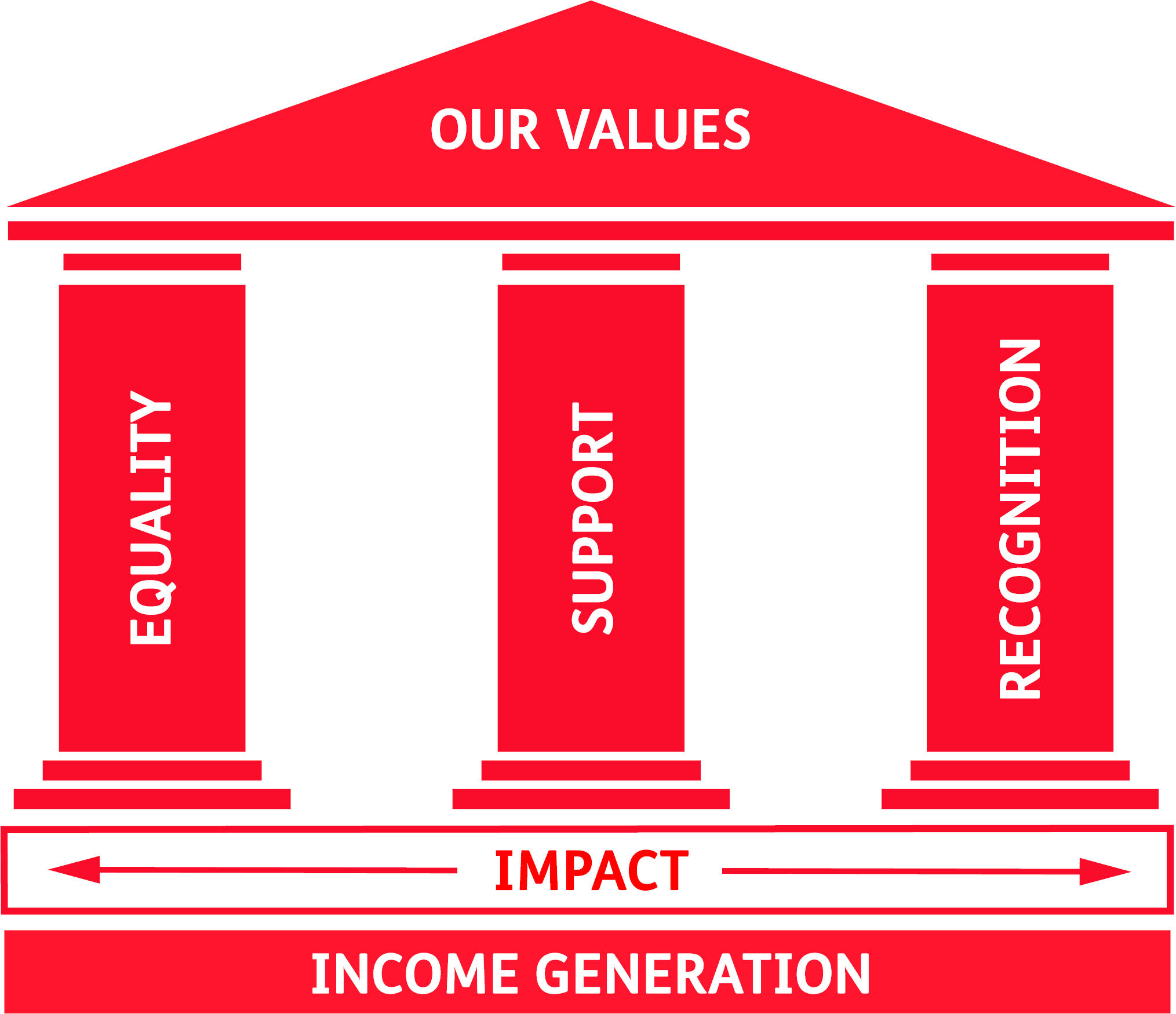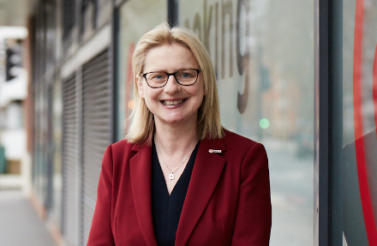When I joined Carers UK in December 2018 we had two years left of our five-year strategy – so I immediately set about learning the ropes, and undertaking a strategic review. No sooner had I presented to the board in early March 2020 the plans for that strategic review than the pandemic hit and everything changed. Firefighting, crisis management, flexibility became our watch words, as they have been for so many – if not all in the sector – over the last 15 months.
We transitioned to home working across all four nations pretty smoothly – mostly thanks to the can-do attitude of the staff team. But foremost in our collective minds were our beneficiaries, unpaid carers and how we could better support them at a time when services were closing, government guidance was constantly changing and they were doing more than ever, whilst also propping up a health and social care system beyond capacity. And yet they weren’t the carers we clapped for - they were the ones caring behind closed doors – supporting those shielding – juggling work and care at home, unable to get to supermarkets or unable to afford food so using foodbanks.
There was much to do to get carers on the radar of government, of the NHS and social care services. We quadrupled our helpline hours overnight, designed online meet ups and updated our advice and information webpages up to four times a day as guidance changed so rapidly in those early days. And then there was fundraising to meet the continued need - challenge events were cancelled as we all know, and new funding had to be sourced quickly to cover the extra support costs – this was not the time to write a strategy.
The rulebook has gone out of the window
It was fortunate that in that first year we had focused on getting our income generation on an even keel. Our strategy of securing multi-year income of having both ‘earned income’ from our Employers for Carers membership programme, and fundraised income across a range of different streams has meant we were less affected than some other organisations and ended the financial year ahead of target. This is not to say we are complacent, these are extraordinary and unknown economic times. It is not just about income it’s also about expenditure and ensuring that we forensically manage that.
What has been overwhelmingly clear is like for many others this year the rulebook has gone out of the window, we have had to be nimble and flexible in how we respond to the external situation. Be it the positive news of the vaccine and fighting to ensure carers were included in priority six, or the ongoing battle to get fundamental social care reform as we come out of the pandemic. As such when we picked up the strategic review in September it became very clear that a fixed term traditional five-year plan just wasn’t going to cut it in this new world and so we set out Vision 2025 in a very different way to that we had planned.
We know that carers will be needing even more support as we come out of the pandemic: respite care and support services re-opening, flexible working challenges addressed, financial issues created by the pandemic resolved, grief not processed during this period or the mental health ticking timebomb of lockdown addressed, getting both vaccines and then the annual booster - and the unknown issue of caring for those with long-Covid.
The bottom line is that there are a lot of unknowns in the short and medium term which makes long term planning hard. Hence, we’ve written a five-year Direction of Travel - we have set out an ambitious plan for unpaid carers but we are also realistic enough to know that in this extraordinarily fluid world we will need to be nimble, flexible and reactive if we are to support carers as best we can.
Three core goals
Vision 2025 will take Carers UK to our 60th anniversary and that is an important milestone for which we have set ourselves three core goals to have carers better valued by society.
- to create a society that requires carers to be treated equally in all aspects of their lives
- to connect carers so that no one has to care alone
- to halve the time it takes for carers to recognise themselves as carers and get the support they need.
As a national charity we are also very mindful of the differences in the devolved parliaments in how they support unpaid carers and it is an ambition of ours to take best practice from all nations and support them into practice in the others.
We have split our new Direction of Travel into three pillars: Equality, Support and Recognition (the three areas carers tell us are most important to them) – overseen by new values – Attentive, Ambitious, Achievers - which have been developed by our staff team and reflect the way we will need to work in order to deliver in this new world. It all sits on a platform of impact collection, monitoring and evaluation which will prove we are making a real difference to the lives of carers and income generation because without money we can’t achieve any of it.

Under the equality pillar we will focus on policy and legal change. Here we state our overarching ambition to achieve the 10th protected characteristic for unpaid carers. Whilst this is a considerable ambition, by setting our sights high we believe it will enable us to achieve much en-route to the final goal.
We provide support in a variety of ways: This includes our campaign and policy work to get carers support from government and the direct support we provide to carers ourselves (our helpline, forum, advice pages and online support sessions). Our research underpins both to ensure we are providing and campaigning for what carers need/want at that moment in time.
Recognition is the final pillar of the strategy and links all the themes together. We know that it takes two years on average for carers to identify as such. We also know that during that time their own health, wellbeing and financial stability suffers, that by putting their own needs last their ability to care is also impacted. We therefore know, as is so often the case, that early intervention is best. But it shouldn’t be on the shoulders of carers alone to self-recognise - others should recognise them too.
In short, we have very clear end goals – the route we will take will be flexible, possibly even circuitous but I am just as confident that carers will benefit as I am that their numbers will increase and all of us will be affected by caring at some point in our lives.
Read Carers UK’s new Direction of Travel here.
Helen Walker is chief executive of Carers UK
Related articles











